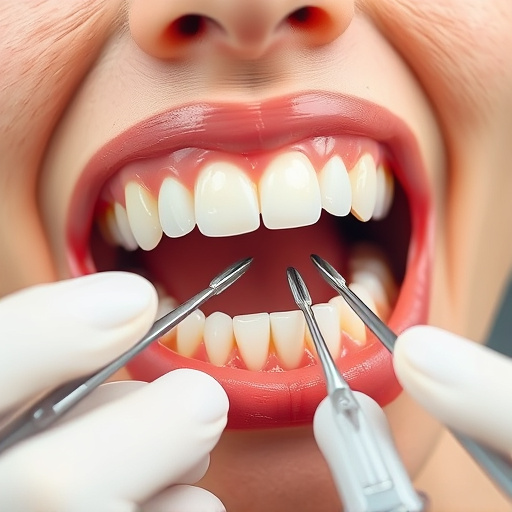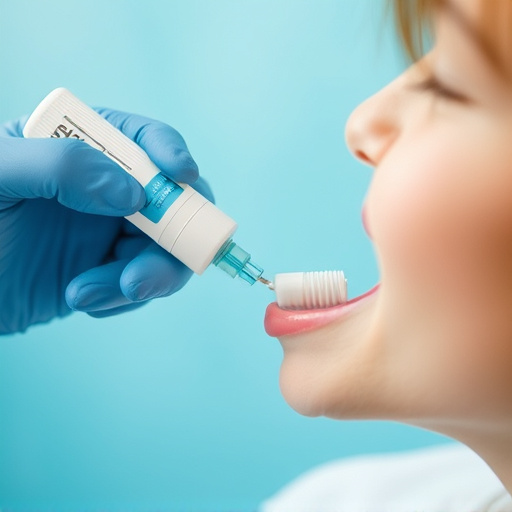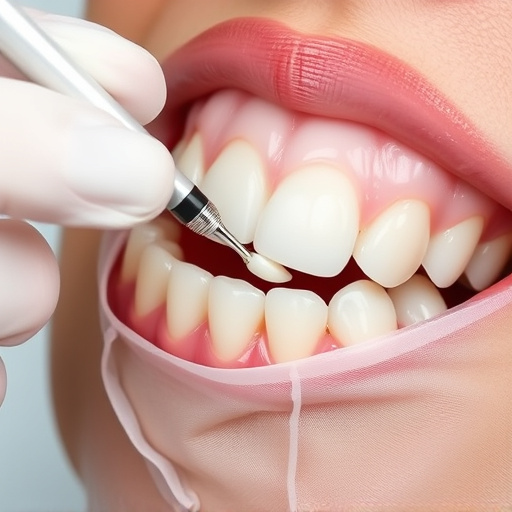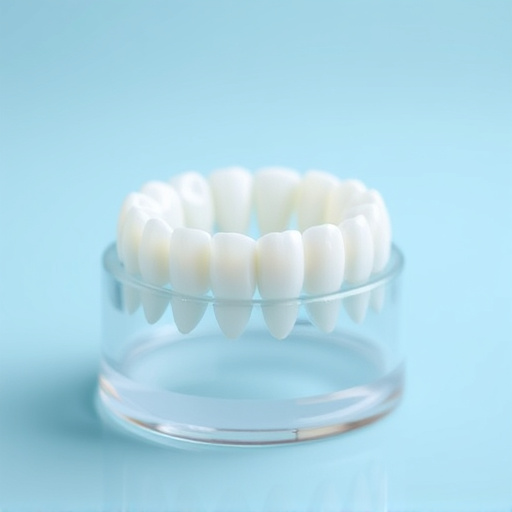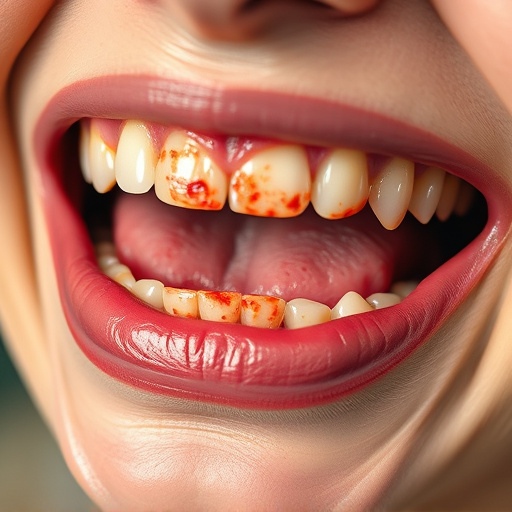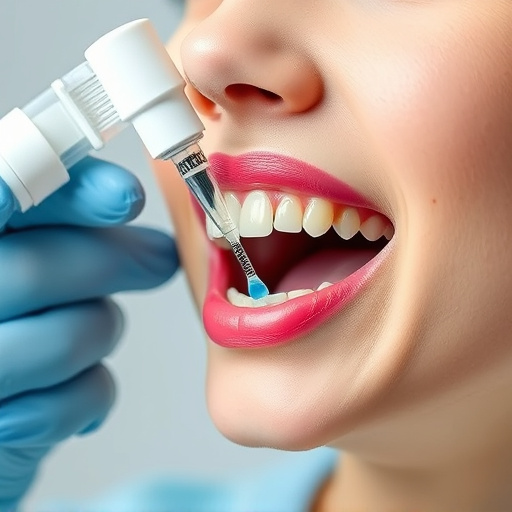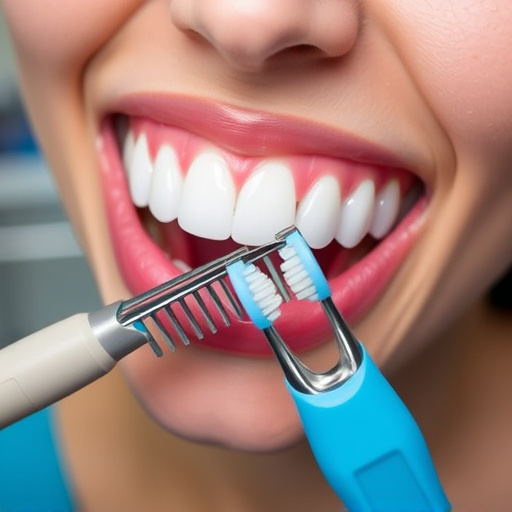Urgent dental care is crucial for maintaining oral health and preventing severe infections. Recognizing signs like toothaches, jaw pain, or facial swelling is key. Qualified family dentistry professionals address issues such as broken teeth, extreme sensitivity, and dislocated jaws promptly through restorative procedures like dental crowns to save teeth and minimize bacterial entry into the bloodstream. Timely interventions like root canals or dental implants prevent complications and preserve overall well-being. Robust infection control measures, including sterilization protocols, PPE use, and staff training, ensure safe urgent dental care environments that enhance patient confidence.
“Urgent dental care is not just a convenience—it’s a crucial aspect of infection prevention. In today’s fast-paced world, knowing when to seek immediate dental attention can be life-saving. This article delves into the significance of urgent dental care, guiding readers through key signs requiring prompt action and the vital role it plays in preventing severe dental infections. We explore effective infection control measures specific to urgent dental settings, emphasizing best practices for a safe, sterile environment.”
- Understanding Urgent Dental Care: When to Seek Immediate Attention
- The Role of Prompt Action in Preventing Dental Infections
- Effective Infection Control Measures in Urgent Dental Settings
Understanding Urgent Dental Care: When to Seek Immediate Attention
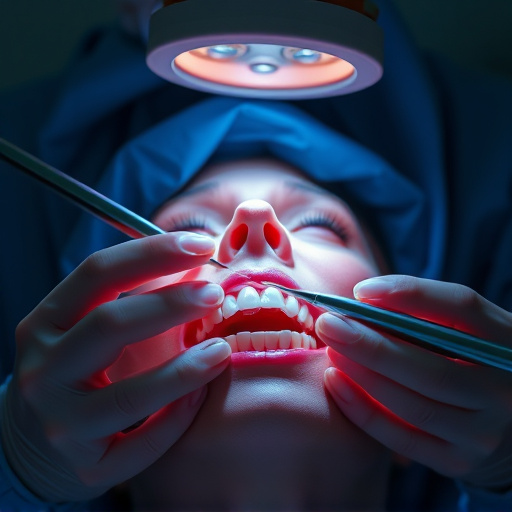
Urgent dental care is a crucial aspect of maintaining oral health and preventing infections. It’s important to recognize when immediate attention is needed to avoid severe complications. Seeking prompt treatment for dental emergencies, such as toothaches, jaw pain, or facial swelling, can help preserve the affected tooth and prevent the spread of infection throughout the mouth.
Knowing when to visit an urgent dental care clinic can make all the difference in outcomes. Conditions that warrant urgent attention include a broken tooth, severe tooth sensitivity, or a dislocated jaw. Restorative dentistry procedures like dental crowns may be recommended as part of tooth repair to restore function and aesthetics after an emergency. Timely intervention not only saves teeth but also ensures overall well-being by minimizing the risk of bacteria entering the bloodstream through infected gums.
The Role of Prompt Action in Preventing Dental Infections
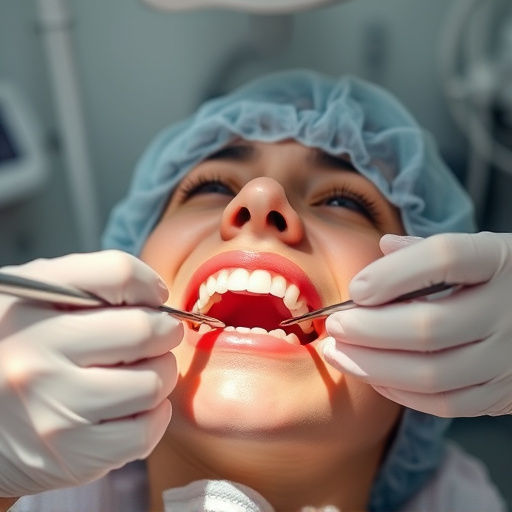
Prompt action is paramount in dental care to prevent infections. When a patient experiences a toothache or oral trauma, immediate attention from a qualified family dentistry professional can significantly reduce the risk of bacterial invasions that could lead to severe infections. Urgent dental care services ensure that any issues are addressed swiftly, minimizing the potential for complications.
Timely intervention is crucial when dealing with broken teeth, abscesses, or gum injuries. A prompt visit to your dentist might involve procedures such as root canals, which save infected teeth, or the placement of cosmetic fillings to repair chips and cracks. In some cases, advanced treatments like dental implants can be recommended for permanent solutions. Urgent dental care, therefore, not only alleviates immediate discomfort but also plays a vital role in maintaining overall oral health and preventing more serious health issues down the line.
Effective Infection Control Measures in Urgent Dental Settings
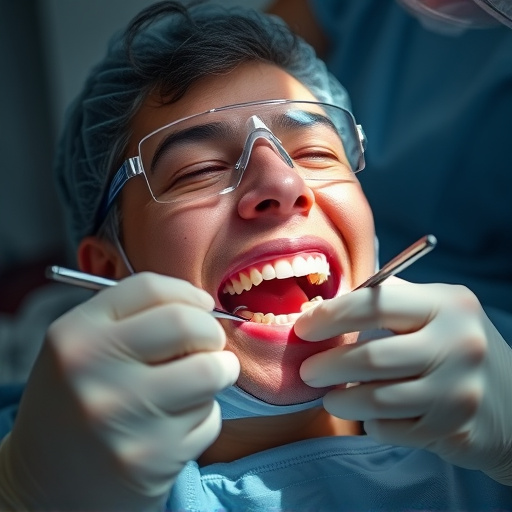
In urgent dental care settings, implementing robust infection control measures is paramount to safeguard patients and dental professionals alike. These measures involve a multi-faceted approach, encompassing strict sterilization protocols, regular sanitization of equipment, and adherence to universal precautions. Dental practices offering urgent care should ensure all surfaces are thoroughly disinfected between patient interactions, including high-touch areas like doorknobs, counters, and treatment chairs.
Additionally, utilizing personal protective equipment (PPE) such as gloves, masks, and eye protection is crucial. Proper training on infection control practices for all staff members, including specialized techniques for removing and disposing of contaminated materials, ensures a safe environment. Incorporating these strategies into the routine of family dentistry not only prevents the spread of infections but also instills confidence in patients seeking urgent dental implants or teeth cleaning services.
Urgent dental care plays a pivotal role in preventing dental infections, emphasizing the need for swift action. By understanding when immediate attention is required and implementing effective infection control measures, dental professionals can ensure patient safety and well-being. Prompt treatment not only alleviates pain but also reduces the risk of severe complications, underscoring the significance of accessible urgent dental care services.








